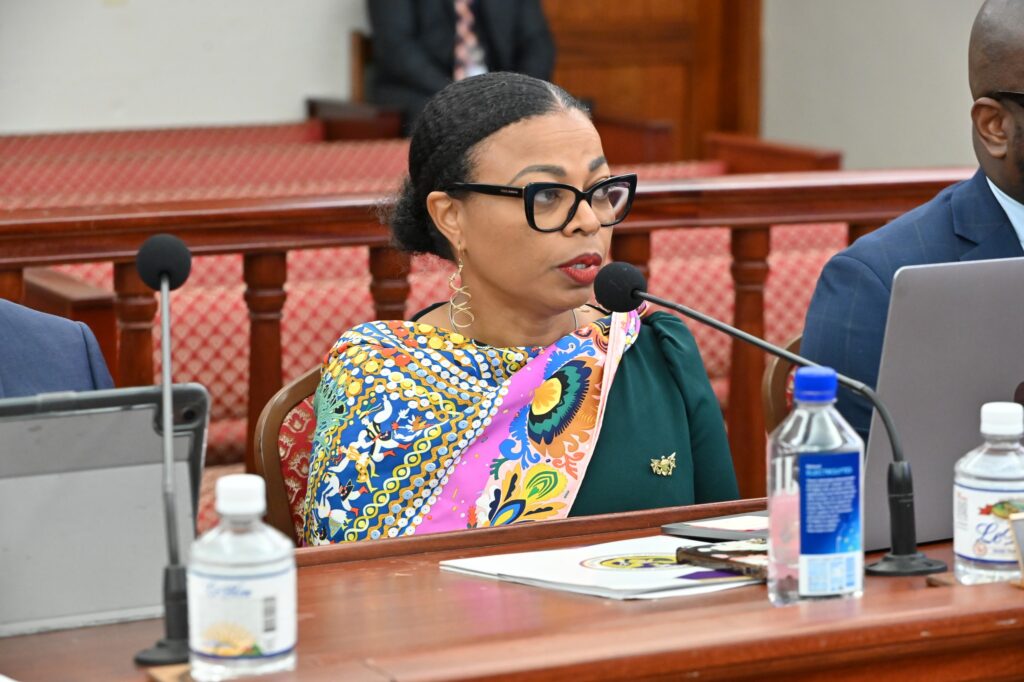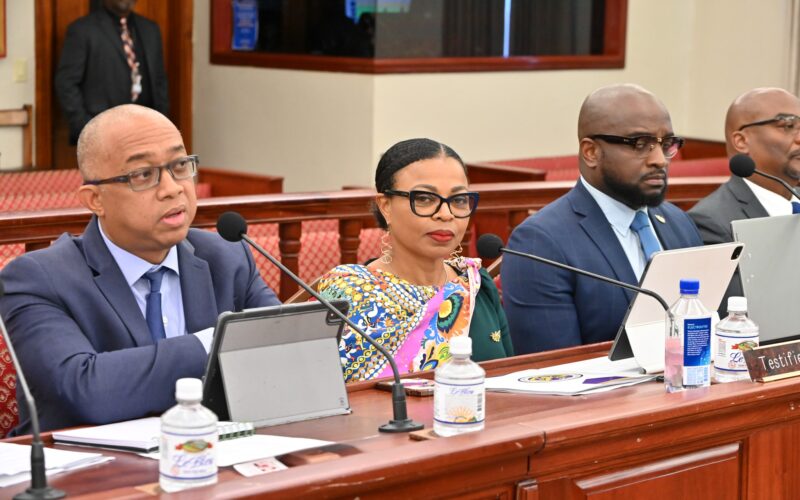CHARLOTTE AMALIE — Testimony by Governor Albert Bryan’s financial team on Thursday provided the clearest picture of the territory’s financial health heard in months and included both an overview of the fiscal year 2025 executive budget as well as a mid-year review of the current fiscal year’s budget and revenues.
Government House and the Management and Budget Office unveiled the proposed 2025 budget last week, which can be found online by visiting omb.vi.gov.
The budget proposes appropriating $77 million less to the General Fund than lawmakers approved last year, a decrease Office of Management and Budget Director Jenifer O’Neal attributed to the crossing off of certain one-time obligations and a reduction in the wage adjustment line item to cover only pending negotiated contracts that are scheduled to go into effect in October.
O’Neal testified that local revenues are largely forecast to rise, with the largest increase coming from a 23 percent jump in corporate income taxes due to large-scale construction projects expected to come online.

Office of Management and Budget Director Jenifer O’Neal
In contrast, O’Neal shared during the mid-year update, corporate income tax collections have decreased by 32 percent so far year-to-date when compared to FY2023, and most other revenue categories saw year over year declines.
Questioning of testifiers eventually turned to what Senate Finance Chair Sen. Donna Frett-Gregory termed “the elephant in the room” — $25 million in retroactive wages, which were included in last year’s budget bill, but which have yet to make their way into Virgin Islanders’ wallets.
Bryan introduced the retroactive wage payments in a supplemental budget bill sent to the Legislature last August. The measure was approved, and the money was to have been distributed by last December. But lawmakers learned in January that only $2.5 million was distributed as the government scrambled to make payroll and outstanding vendor payments amid a dire cash crunch.

On Thursday, Frett-Gregory asked whether federal funds from the American Rescue Plan Act were drawn down to cover that particular expense.
O’Neal said they had, but that prior year expenses continually surfaced and prevented them from being able to make all of their anticipated payments in full.
“And that contributed to the delayed payments for vendors, delayed payments for everything — because we had so many invoices coming through that were not planned for, were not known about, were not budgeted — and so all available resources went towards paying down these invoices and making sure that payroll could be covered,” O’Neal said.
She added that the V.I. government still intends to honor its obligation to pay the remaining $22.5 million. No timeline was specified.
By KIT MACAVO/V.I. Daily News

